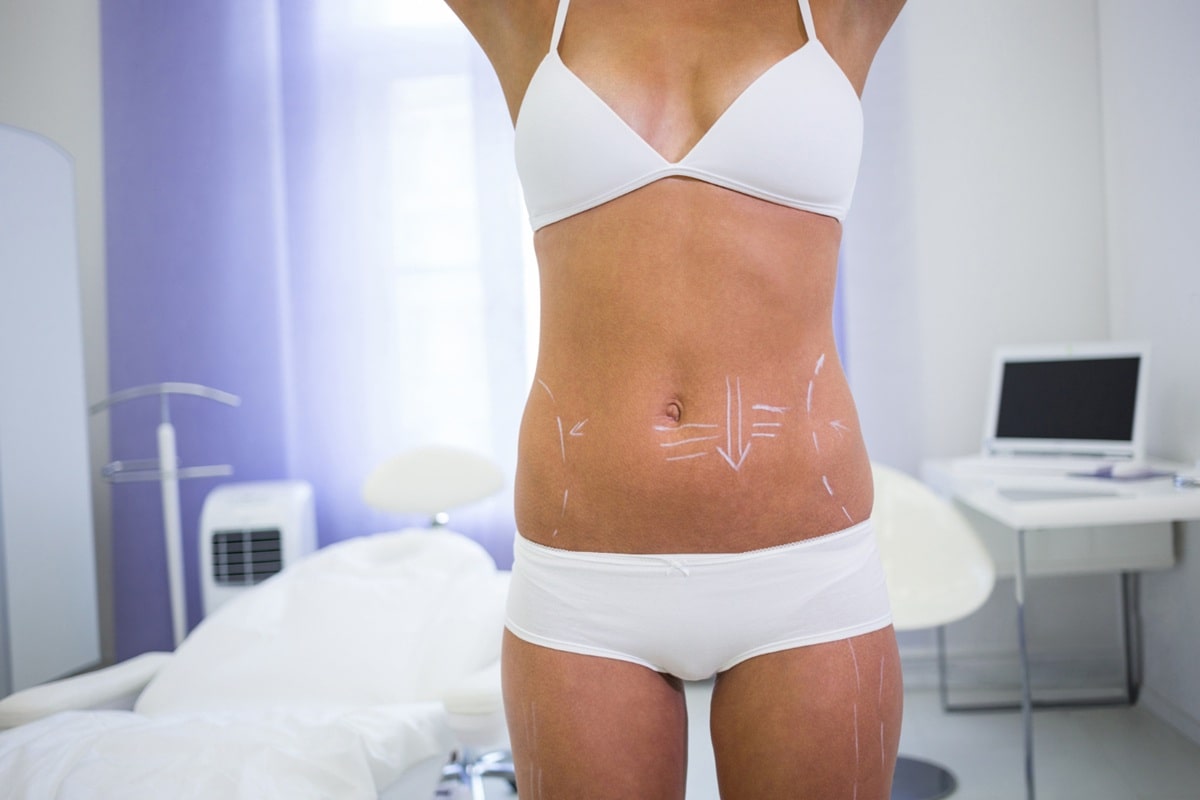Skin care mistakes that make skin age faster

Improper skin care can accelerate the appearance of wrinkles, discoloration and loss of skin firmness. Often unconscious mistakes - from skipping sunscreen to falling asleep in makeup - accumulate and cause premature aging. That's why we've created this guide, collecting the most common skin care sins and tips on how to avoid them for a youthful appearance.
Why does skin care affect the rate of aging?
Skin aging is a natural biological process resulting from internal conditions such as genetics, hormonal changes and the rate of cellular regeneration. It cannot be stopped completely, but the course and intensity can be significantly influenced. In addition to endogenous conditions, external factors are equally important, which have a huge impact on the appearance of the skin in the long term. So-called exogenous aging factors include UV radiation, air pollution, oxidative stress, diet and... daily skin care. Although seemingly trivial, improper skin care habits - repeated every day - lead to the accumulation of micro-damage, which over time accelerates the formation of wrinkles, discoloration or loss of firmness.
We should remember that the skin is a dynamic organ that responds to the environment, the rhythm of the day and the care measures taken. Regardless of skin type, the way it is treated significantly affects the rate at which signs of aging appear. Therefore, it is important not only to use "anti-aging" cosmetics, but above all to avoid actions that accelerate the degradation of skin structures.
Skin as a barrier - the need for balance
The skin acts as a protective barrier - it separates the body from the external environment, protects against microorganisms, water loss and mechanical and chemical damage. An important role in this process is played by the hydrolipid layer, a thin film composed of water and lipids, which covers the epidermis and is responsible for its proper functioning.
Under normal conditions, the skin has the ability to regenerate itself, is able to moisturize itself, recover from minor irritations and protect itself from external factors. However, this balance is easily upset, such as by aggressive cleansing, too frequent exfoliation, insufficient hydration or lack of photoprotection. Damage to the hydrolipid barrier results in increased water loss (TEWL), dryness, and consequently less elasticity and susceptibility to fine lines and wrinkles. Skin that lacks protection also becomes more susceptible to free radicals, which damage collagen and elastin fibers. As a result, the aging process accelerates, and symptoms like an earthy tone, roughness and flabbiness become more and more apparent.
Reach out for more tips and read the article: How to take care of your skin in summer? A comprehensive guide to protection and care
Mistake 1 - no daily sun protection
Of all skin care mistakes, skipping UV protection is considered the most damaging to the skin - especially in the long term. UV radiation, especially UVA rays, is one of the main factors accelerating the external aging process. Their effects lead to photoaging, which is the degradation of skin structures caused by ultraviolet radiation.
Exposing the skin to the sun without protection - even for short periods of time and with seemingly little exposure, such as a daily walk, driving or being in a bright room - causes micro-damage to accumulate in the deep layers. UVA rays penetrate into the dermis, damaging collagen and elastin, which over time leads to:
- The formation of wrinkles and furrows,
- loss of firmness and elasticity,
- Discoloration and uneven skin tone.
Importantly, the radiation acts invisibly and asymptomatically - unlike UVB-induced burns. Therefore, many people neglect the need for daily protection, limiting SPF only to the beach or vacations.
In the context of anti-aging care, creams containing powerful antioxidants such as vitamins C, E, A and glutathione are crucial. These ingredients occur naturally in the skin and promote its protection against UV-induced oxidative stress. Their regular use is an important part of anti-aging prevention. Lack of such support - repeated day after day - can significantly accelerate skin aging.
Just the sun or also a tanning bed?
Although sunlight is the most common source of UV exposure, tanning beds are just as harmful, if not more so. In a single session, the skin receives a very high dose of concentrated UVA radiation, which penetrates deeply, destroying collagen fibers and accelerating photoaging.
Radiation in tanning beds acts more strongly than natural sunlight, and its intensity is sometimes unsuitable for skin type. The effects of regular use of tanning beds are:
- Deep, difficult-to-reverse changes in the structure of the skin,
- Much faster aging and deterioration of skin quality,
- A significant increase in the risk of skin cancer (including malignant melanoma).
For this reason, both dermatologists and public health organizations unequivocally advise against the use of tanning beds. In the context of anti-aging care, it is one of the most destructive habits.
Mistake 2 - not removing makeup and dirt before bedtime
One of the underestimated, yet extremely harmful skin care mistakes is going to bed without thoroughly cleansing the face. The makeup, dust, sebum and environmental pollutants left on the skin not only block the sebaceous glands' outlets, but also impede the natural regenerative processes that occur at night. During sleep, the skin renews itself intensively - repair processes intensify and collagen production increases. However, if makeup residue is left on the skin, tissue hypoxia, inflammation and oxidative stress occur. Free radicals present in the skin begin to destroy cell structures, including collagen and elastin fibers.
In effect, this leads to:
- collagen breakdown, or loss of skin firmness,
- accelerated formation of wrinkles,
- An earthy, gray complexion,
- The severity of acne lesions and blackheads.
Regular repetition of this mistake results in gradual deterioration of the skin - even the best creams or serums will not be able to work effectively if they are applied to an inaccurately cleansed surface.
Impact of urban pollution
Even people who do not use makeup are not exempt from the obligation to thoroughly cleanse their skin in the evening. During the day, environmental pollutants are deposited on the surface of the face, including: smog, dust, heavy metals, exhaust fumes and other toxins. Especially in urban environments, exposure to such factors is a daily occurrence.
These impurities penetrate the stratum corneum, causing irritation, oxidative stress and inflammatory microstates. This, in turn, leads to the activation of collagen-destroying enzymes (including metalloproteinases), which accelerates the aging process. Studies show that people living in heavily polluted metropolitan areas develop wrinkles and hyperpigmentation faster than those in areas with cleaner air¹.
The rule is simple - regardless of the time of day, the amount of makeup or the intensity of activity - the face should always be thoroughly cleansed before bedtime to allow the skin to regenerate properly. It is also crucial to use cosmetics with antioxidant properties.
Makeup removal of eyes and delicate areas
The skin around the eyes is the weakest and thinnest - lacking sebaceous glands, it is more susceptible to loss of elasticity and the formation of wrinkles. Therefore, improper makeup removal technique - especially rubbing or pulling the eyelid skin - leads to micro-damage and accelerates the formation of "crow's feet" and sagging.
Gentle makeup removal methods are recommended:
- syndets, or mild cleansers without alcohol or irritants,
- Makeup remover oils (e.g., avocado, sweet almond),
- Milks or biphasic cleansers.
It is best to apply the product to a cotton pad and apply it to the eye for a few seconds to dissolve the cosmetic, and only then gently wipe without rubbing. For waterproof mascara, it is worth using dedicated oil-based products that will effectively, yet safely, remove cosmetics from eyelashes and eyelids.
Mistake 3 - excessive skin exfoliation
Exfoliating dead skin is an important part of skin care - it promotes cell renewal, smooths the skin and improves the absorption of active ingredients. However, too frequent or too aggressive exfoliation does more harm than good. So-called over-exfoliation, or excessive exfoliation, leads to permanent damage to the skin's protective barrier, which accelerates the aging process.
Using granular scrubs daily, combining several cosmetics with AHA/BHA acids, and applying strong retinoids in parallel with other irritants are some of the most common mistakes. Skin deprived of time to regenerate becomes:
- Overdried and tightened,
- Reddened, burning,
- prone to micro-damage,
- less elastic and more likely to perpetuate wrinkles.
Instead of stimulating renewal, excessive exfoliation slows down regenerative processes, unbalances the skin and makes it look tired and older than it really is.
How often to use scrubs?
For exfoliation to be of real benefit, it must be tailored to the skin type, performed in moderation and in accordance with the skin's natural renewal rhythm, which in normal conditions is about 28 days. Therefore, peels should not be used more often than once a month - too frequent exfoliation does not give the skin time to fully regenerate, which can lead to disorders in the functioning of the epidermal barrier.
The stratum corneum plays a key role in maintaining homeostasis - it is the one that forms a barrier against water loss, external factors and pathogens. Its violation through too frequent exfoliation weakens the skin's resistance, causing dryness, irritation, hyper-reactivity and, in the long run, premature aging.
For most skin types, an enzyme or chemical peel (e.g. AHA/BHA) once a month or even less frequently is completely sufficient. Dry, sensitive or vascular skin may need even longer intervals between treatments. Mechanical (granular) peels should be avoided by those with delicate or reactive skin.
The best approach is to listen to the needs of the skin - if symptoms such as redness, dryness, burning or a feeling of tightness appear, it is worth abandoning exfoliation and focusing on rebuilding the protective layer. Cosmetics with ceramides, squalane, cholesterol, panthenol will help.
Excessive exfoliation is one of the most common mistakes made in home care - often in the belief that "the more, the better." Meanwhile, the most effective skin care is that which supports the skin's natural processes rather than interfering with them.
Mistake 4 - skipping hydration or poor hydration
Moisturizing is one of the key steps of skin care, but it is still sometimes overlooked or not adjusted to the actual needs of the skin. Meanwhile, well-hydrated skin has a much greater potential for proper regeneration - the enzymes responsible for cell renewal require the presence of water to work effectively.
Dry, insufficiently moisturized skin:
- It looks dull and tired,
- It becomes thin, rough and prone to microcracks,
- has more pronounced facial wrinkles and a faster tendency to fix them,
- regenerates less well at night and reacts less well to active ingredients in cosmetics.
However, skin care cannot be schematic - it must be carefully observed. While moisturization is absolutely essential for dry or mature skin, with oily skin, products that are too heavy or improperly selected can clog the sebaceous gland outlets and lead to skin deterioration. The exception is when using exfoliating products such as retinol, in which case proper moisturization is necessary to minimize irritation.
The most common hydration mistakes are:
- No cream after washing - the skin is left without a protective layer, so it loses water faster and becomes tight,
- formulas that are too light for dry or mature skin - they do not provide comfort or recovery support,
- Excessive moisturization of oily skin - can lead to cosmetic acne.
Do not blindly follow trends. Observation of the skin is key - if it feels tight, rough or unpleasantly tight after cleansing, it's a sign that it needs moisturizing - regardless of the type. If there is no such sensation, you can skip this step of skin care.
Hydro-lipid balance
Well-moisturized skin is one that maintains hydro-lipid balance, that is, adequate levels of both water and lipids. To achieve this, skin care should combine two types of ingredients:
- Humectants that attract and bind water in the epidermis (e.g., hyaluronic acid, glycerin, urea),
- Emollients and lipids that form a protective layer to prevent evaporation of water from the skin (e.g., ceramides, vegetable oils, shea butter).
Drinking water and skin
Although hydrating the body from the inside is important for the overall condition of the skin, simply drinking plenty of water is not enough to keep the complexion looking young and healthy. Even with optimal hydration, the epidermis needs support from the outside - primarily a protective layer to reduce transepidermal water loss (TEWL). Only a combination of a well-balanced diet, adequate hydration and conscious moisturizing care can keep skin supple, resilient and less prone to wrinkles.
Mistake 5 - using inappropriate cosmetics
Effective skin care requires not only regularity, but above all, matching products to individual skin needs. Unfortunately, many people are guided by fashion, recommendations from social media or their own habits from years ago, instead of the actual condition and requirements of their skin. Meanwhile, improperly selected cosmetics may not only fail to work, but may even accelerate skin aging.
Examples of the most common mistakes include the use of strong acne preparations (e.g. with alcohol, sulfur, benzoyl peroxide) on mature or dry skin. This leads to excessive dryness, irritation and faster loss of elasticity. On the other hand, applying greasy, heavy creams to oily or acne-prone skin results in clogged pores, inflammation and micro-damage, which disrupt the skin barrier and accelerate aging.
Introducing several intense ingredients at once (e.g., retinol + glycolic acid + vitamin C) too quickly can:
- irritate the skin,
- cause erythema, flaking, burning sensation,
- Disrupt the hydrolipid barrier.
It is recommended to introduce active ingredients one at a time and gradually, e.g. for the first 2-3 weeks only twice a week, observe the skin's reaction and gradually increase the frequency, avoid combining retinoids and acids in one routine (especially at the beginning of the treatment) and use soothing and moisturizing creams in parallel with active therapy.
Mistake 6 - harmful habits
Some lifestyle habits have no less destructive effects on the skin than poor skin care. Chief among these is cigarette smoking - a factor that directly accelerates the aging process. Tobacco smoke contains thousands of chemicals, including free radicals, which lead to oxidative stress and skin cell damage. As a result:
- The breakdown of collagen and elastin is accelerated,
- The skin loses firmness and becomes thinner,
- Microcirculation is reduced, leading to an earthy-brown complexion,
- characteristic deep smoker's wrinkles appear, especially around the mouth and eyes.
Nicotine further constricts blood vessels, restricting oxygen and nutrients from reaching skin cells. This causes the epidermal regeneration process to be impaired, and the skin ages much faster, often in a way that is difficult to reverse.
Other harmful factors that negatively affect the condition of the skin include excessive alcohol consumption and insufficient sleep.
- Alcohol causes dehydration of the body and skin, making it gray, dull and less elastic. It also increases the risk of swelling (especially around the eyes), redness and aggravation of vascular problems, and with frequent consumption - leads to permanent structural changes in the skin.
- Lack of sleep disrupts the diurnal rhythm and reduces the activity of natural regenerative processes that occur at night. During sleep, the body reduces cortisol levels and intensifies tissue repair.
It is worth remembering that even the best cosmetics will not compensate for the damage that results from the long-term effects of these factors. Therefore, a holistic approach to skin care - including a healthy lifestyle, proper diet, sleep and limiting stimulants is essential if the goal is to slow down the aging process and maintain a youthful appearance for longer.
Also check out the best facial treatments after 50 - how to take care of mature skin?
Frequently asked questions about care errors (FAQ)
Will falling asleep in makeup once actually harm the skin?
Even a single night without makeup removal is not indifferent - the skin has no chance to regenerate, pores are clogged, resulting in pimples or irritation. However, the greatest damage is done by habitual sleeping in makeup. If it happens to you once, the world will not collapse, but try not to make it into a routine.
I am 25 years old, should I be using anti-wrinkle creams already?
At this age, the most important thing is prevention, i.e. moisturizing and cosmetics containing antioxidant ingredients. You don't have to use heavy anti-wrinkle creams, but by introducing, for example, low concentration retinol or vitamin C, you can delay the appearance of aging signs. Hydration and a healthy lifestyle are also important. Intensive anti-wrinkle treatments are usually recommended after the age of 30, when the skin begins to regenerate more slowly.
Does oily skin also need moisturizing cream?
Skin does not always need moisture. Oily skin produces sebum (fat), so it is usually well moisturized. The exception is when you use products with an exfoliating effect, such as retinol, AHA/BHA acids. Then it may be dehydrated. But in such cases, choose lightweight formulas - gel moisturizers, non-comedogenic creams that will provide hydration without clogging the sebaceous glands' mouths.
Enzymatic or granular peeling - which is better for aging?
Enzyme (or acid) peeling is gentler - it dissolves dead cells without friction, so it is less intrusive to the skin and is better for mature or sensitive skin. A granular scrub can be used occasionally for thick, resistant skin, but too frequent will irritate. It is not a good choice with coexisting pimples and papules. It can cause spreading of lesions. For anti-aging, it is better to bet on gentle enzymatic/chemical exfoliation, which will stimulate cellular renewal without micro-trauma.
Sources
- Venus Treatments. Sleeping in makeup? Here's what happens to your skin.[https://www.venustreatments.com], accessed May 29, 2025.
- Platinum Skincare. Over-exfoliation: signs, risks and how to fix it.[https://www.platinumskincare.com], accessed May 29, 2025.
Worth watching





















